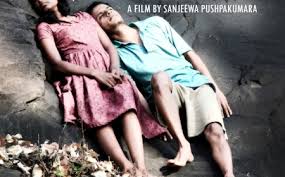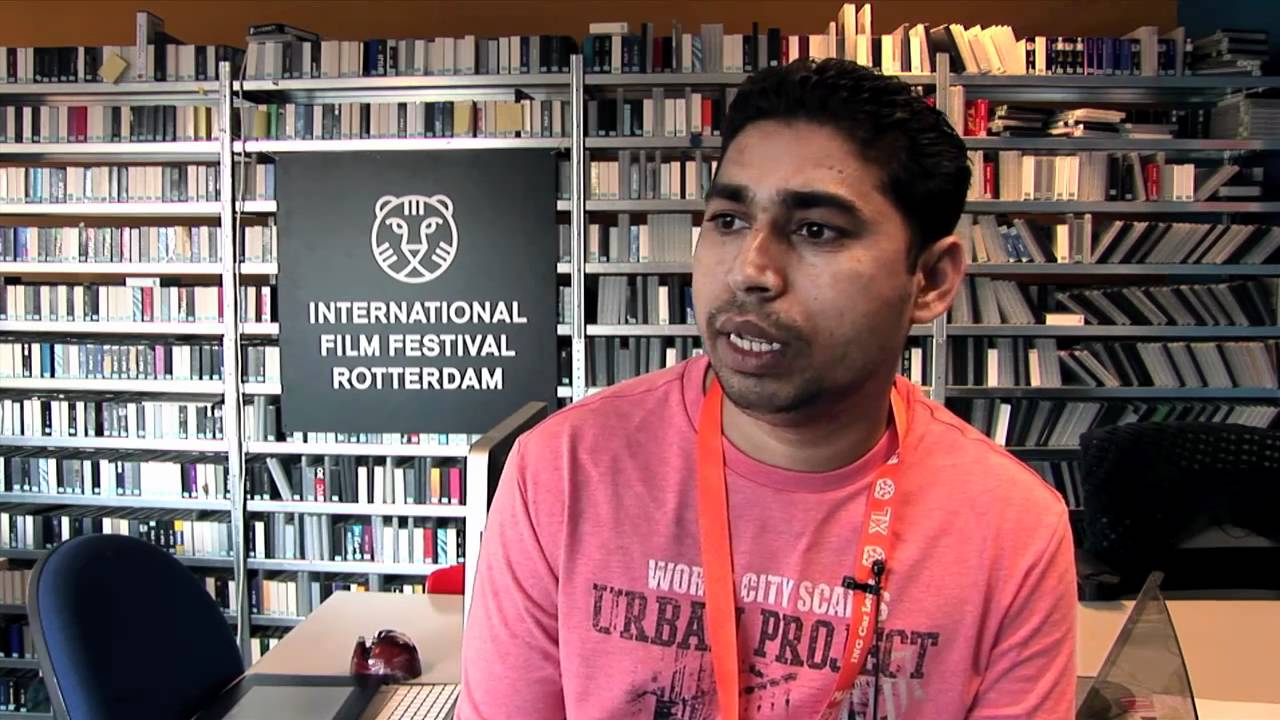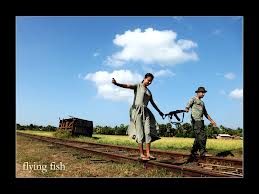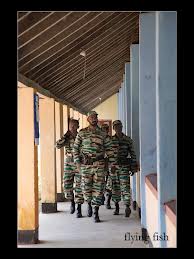Flying fish, Sanjeeva Pushpakumara, a hysterical government and the constriction of the arts in Sri Lanka
I met Sanjeeva Pushpakumara last year in a little art cinema off the Champs Elysees at the showing of Ashoka Handagama’s Ini Avan. It
seemed he knew me from his days as a student or a journalist. A pleasant, articulate yet understated young man, of less taciturn intensity than Handagama, he debated Ini Avan with me. He introduced me to his Professor who was a member of the Jury at Cannes. Sanjeewa also turned up at a reception we hosted at the Embassy. Sanjeewa now owes a great debt to the officials of the Sri Lankan state, who in their generosity have given him and his movie global publicity. Next stop Cannes and then Hollywood perhaps?
The hysterical reaction of sections of the State and uncivil society to the movie Flying Fish and the French Film Festival raises many questions and all of them disturbing. I haven’t seen the movie but then again nor have those who demonstrated against it. While I cannot praise or condemn the film, I do note that it has won many international awards, mostly in Asia and one in Russia. If a movie has been repeatedly acclaimed by cinema critics in diverse parts of the world but is excoriated by the Sri Lankan state apparatus, then it is logical that the latter is out of tune with prevailing aesthetic and critical norms and standards. In other words, the hysteria reveals that there is far more wrong in places over here than with the film itself.
Let us however, assume that everything that those who condemn the movie say is correct. The answer
is to have a vigorous discussion and criticise the film deploying the accepted canons of film criticism, not suppress it; still less hit the streets in raucous protest and lynch dissident artists, writers, translators and critics in the state media.
Even better, the authorities should encourage and facilitate the making of international class movies which convey the message that the state alleges ‘Flying Fish’ has not done but should have.
If young filmmakers and artists cannot explore our dark violent past, reflecting –and reflecting upon– the tragedy we lived through, embracing the common humanity of all the protagonists with all the frailties that implies, how then can reconciliation take place?
Over the past year or two there has been a remarkable efflorescence of the Sri Lankan (mainly Sinhala) cinema. Just count the number of movies that have won awards at international festivals. There is a New Wave of post-war Sri Lankan cinema. Add to this the award-winning works of fiction (chiefly in the English language) by young Sri Lankan writers. Is this new wave in the Arts to be stifled by the
sensitivities of officials who decide which subjects are sacrosanct and which treatments taboo?
If the narrow minded Public Performances Board has itself approved a movie – and one recalls the stern editorialising in the state run Daily News against the hidebound conservatism of the ‘Censor board’ in the early 1970s—which other authority can revoke it and under which ordnance, law and article of the Constitution? A minor official was quoted in the state run Daily News as saying that “art for art’s sake” cannot be permitted. Oh really? Since when and says who? Is there an official arts policy in Sri Lanka which governs all artistic creation and production?
State propaganda also has it that the film Flying Fish is not in consonance with the country’s culture. Where is that culture codified? Who decides on what the country’s culture is and isn’t and who gave them the mandate to do so? What kind of culture would it be if the arts are suppressed? How can one conceive of culture without the arts and art without the freedom of the artist to create? One can well imagine the fate of the Sigirya and the Isurumuniya art if these Taliban-type cultural police had served in ancient times.
Has Martial Law been declared in the Arts in Sri Lanka? If the ‘Defence authorities’ whatever that may mean, exercise a veto over the arts, what do they NOT exercise a veto over in civic life? Where do they get the Constitutional and legal right to do so? How does one classify a society in which such a de facto veto exists? Behind an increasingly illiberal democracy are we headed to the type of ‘mixed regime’ which in Latin America of the 1970s was termed a ‘State of National Security’ or a ‘civilian–military junta’? Is a ‘civilian–military junta’ already operating alongside or within the democratic state; more manifest in the former conflict zones but increasingly influential in the island as a whole?
When the bureaucrats and auxiliary mobs target the French Film Festival, who looks bad in the eyes of world opinion, the French or the Sri Lankans? Who then is playing into the hands of the separatist, pro-Tiger Tamil Diaspora, Sanjeeva Pushpakumara or the xenophobes in the Sri Lankan state and Sinhala society? A few months ago, the target was the American Corner. Then it was the German foundations (one of which set up in Sri Lanka at the invitation of the then Minister of Local Government, R Premadasa, in 1965). Now it is the French film festival and the French embassy. Do the Sri Lankan state apparatchiks, propagandists and ideologues think that this will not shift opinion against us in those societies? Do they think that this will generate a positive attitude towards us in the state and governmental structures of those countries?
 How then should an intelligent Third World government under scrutiny or worse, siege, from a superpower or big powers, behave towards critical, dissenting art and artists? Leonardo Padura is one of the most celebrated novelists today. I am a fan, having been introduced to his noir detective fiction by my friend the Ambassador of Portugal to Paris, an activist in the Portuguese Revolution of 1974, who had earlier served as Ambassador to Brazil. Leonardo Padura’s novels are sharply critical of all aspects of contemporary Cuban social, institutional and political life. His books are translated into English and published in New York (I picked up most of my collection at the Grand Central Station). Padura’s books include cynical retrospective asides at the Cuban war in Angola which lasted 12 years and involved 300, 000 troops, in an eminently just cause. Is he in exile in Miami? Has he been denounced by the Cuban armed forces or war veterans? Is he in and out of Cuban jails? Are the Cuban police investigating him? Is he reviled in the Cuban state media? This is what Slavoj Zizek, described as ‘the most dangerous philosopher in the West’, has to reveal:
How then should an intelligent Third World government under scrutiny or worse, siege, from a superpower or big powers, behave towards critical, dissenting art and artists? Leonardo Padura is one of the most celebrated novelists today. I am a fan, having been introduced to his noir detective fiction by my friend the Ambassador of Portugal to Paris, an activist in the Portuguese Revolution of 1974, who had earlier served as Ambassador to Brazil. Leonardo Padura’s novels are sharply critical of all aspects of contemporary Cuban social, institutional and political life. His books are translated into English and published in New York (I picked up most of my collection at the Grand Central Station). Padura’s books include cynical retrospective asides at the Cuban war in Angola which lasted 12 years and involved 300, 000 troops, in an eminently just cause. Is he in exile in Miami? Has he been denounced by the Cuban armed forces or war veterans? Is he in and out of Cuban jails? Are the Cuban police investigating him? Is he reviled in the Cuban state media? This is what Slavoj Zizek, described as ‘the most dangerous philosopher in the West’, has to reveal:
“Leonardo Padura’s Mario Conde police procedurals…provide such a critical view of the Cuban situation (poverty, corruption, cynical disbelief) that one cannot but be shocked to learn not only that Padura lives in Havana but that he is an establishment figure who has received major state prizes”. (Slavoj Zizek, ‘Living in the End Times’, Verso London 2011, pp. 58-59)
It is not that the Cuban regime is less patriotic or anti-imperialist than the Sri Lankan (the former actually fought the imperialists). It is not that it is less zealous in its defence of national and state sovereignty. It is not that its armed forces are less valiant or respected (having made a revolution, defeated counterrevolutionary invasions, fought in Africa and even been stationed on the Golan heights defending Syria). It is that it is an intelligent and genuinely courageous, confident state, which embraces and promotes creativity in the arts, and knows that its prestige is enhanced far more than its stability is threatened by creative expression in music, literature and cinema.
***************************************
[Sri Lanka’s former Ambassador Extraordinary & Plenipotentiary to France and Permanent Delegate to UNESCO, Dr. Dayan Jayatilleka also served in 2007-2009 as a member of the Jury of the TIME FOR PEACE Film and Music Awards launched in New York in 1994.]




